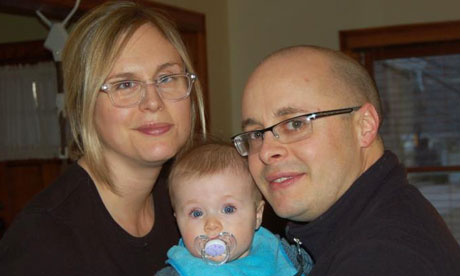
After a bleed in my brain rendered me with sudden disability and facial paralysis at the age of 22, perhaps I should have found it troubling that my biggest concern was how I would find a boyfriend. Relearning how to walk, dress myself and drive - sure, that was important, but I thought the key to feeling "normal" was being desirable romantically.
Going from not having to think about finding a boyfriend to wondering who would want me was painful. I began looking for someone while I still walked with a cane, the shaved part of my scalp was still growing back, and I had tape over one lens of my glasses to correct my double vision. Small wonder it was tough.
Before my brain surgery, I'd always had a boyfriend. In college I dated the different stereotypes: the fraternity boy, the guitar-playing hipster, the future politician, the left-wing activist - I even had the ill-advised fling with a teacher. Eventually, I got serious with a fellow aspiring journalist and we moved out to California after graduation to start our careers, but after the operations we broke up.
After recovering from the surgery for a summer I was well enough to move out of my parents' house and into an apartment. Everyone became a possibility. I wasn't picky. That guy who just lit my cigarette? Was he flirting? What about the bag boy at the grocery store? Didn't he linger at my car?
I tried to make sure my jeans covered the tops of my orthopedic shoes, and went through phases of trying to distract people from my taped glasses and paralysed face with dangly earrings and interesting necklaces. I practised smiling in the mirror in a way that my face would look most symmetrical, which meant I smiled very slightly.
My first plan was to look up an old college love. We had had lots of fun - impromptu road trips! Drinking at dive bars! Music festivals that stretched on for weekends! He had once said that walking down the street with me felt like being with a movie star. He would know I was still the same person even though I looked different. But after a few uncomfortable outings throwing myself at him, it was clear it wasn't going to happen. "I'm sorry," he said one night. "But no."
My friends were supportive of my goal, and I used their shoulders to lean on after nights in bars when I'd had too many beers. Someone with balance issues shouldn't drink as much as I did, but alcohol was one of the only tools I had that made me brave enough to try and flirt.
Inevitably, there was the point when the guy I was hitting it off with would ask about my taped glasses, or why I used the wall for balance when I walked. When the phrase "brain surgery" came up he would back away ever so slightly, and would soon be gone.
My next serious attempt began with a guy I call Hat Guy, because he always wore a baseball cap to cover up his premature baldness. Our relationship evolved like most - we talked late into the night and met each other's friends - but what wasn't normal was the ever-present voice in my head that wondered why Hat Guy liked me. I was looking for some reason he was with me instead of with a "normal" girl. Did he just feel sorry for me?
He always insisted that I made too big of a deal out of my disabilities and differences. He couldn't admit that although I had difficulties, he was OK with that; rather, he pretended they didn't exist. He even tried to get me to go skateboarding with him ... I ended up breaking up with him because he was flaky. He often called late, sometimes not at all, and broke plans at the last minute. Hat Guy helped me realize that, although I did want a romantic partner, I wasn't as willing to settle as I thought.
Eventually I met the man who is now my husband. We met at a party while I was still desperately trying to get my old college boyfriend to notice me. I was out on the steps of a crappy apartment building, wobbly because of the beer, and he took my arm.
We got to know each other through email, sending each other links to funny websites at first, then talking about our lives and forming a real friendship. We had the same wide circle of friends, and saw each other once or twice a week for months before we kissed. That's what made our relationship different. Unlike my other attempts at romance after brain surgery, I didn't rush things with him. I didn't try to attach myself to him just for the sake of having a mate.
My husband accepts how I feel about my situation - my anger, my sadness, my wonder - and he treats me better than I treat myself. Isn't that what we all need? As I was getting to know him, I learned about some trials he'd been through in his own life and got some perspective, something I desperately needed.
I started to realise that even though it often doesn't show on the outside, we all have experiences in our lives that damage us and threaten to hold us back. Mine just happen to be visible.

